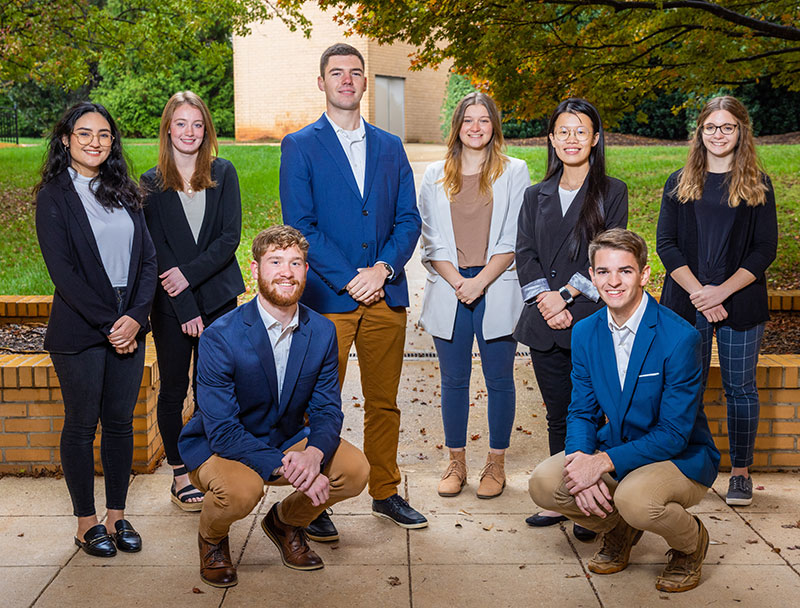
Bob Jones University students enrolled in Global Challenges, a class comprised of students from multiple academic programs who identify an issue and create a real-world solution, have developed an inexpensive device to assess malnutrition in vulnerable children in Ghana, West Africa.
According to the United Nations Children’s Fund, Ghanaians experience high rates of malnutrition. This is an acute problem among children under the age of five and can lead to permanently stunted growth and, in some cases, death.
The nation’s current system relies on measurements recorded on paper oftentimes processed months after collection. The purpose of developing an assessment device is to eliminate the time gap and ensure healthcare providers have the information needed to intervene in a timely manner.
For the past few years, Drs. Amy Hicks and Bernard Kadio, BJU health sciences faculty, have led teams to an orphanage in Ghana, as part of the Childhood Nutrition Project, a lifesaving, multi-year health initiative. The project raises awareness of the causes and identifies children susceptible to the effects of malnutrition. Their work has dramatically reduced childhood mortality at the orphanage.
In conjunction with that effort, Global Challenges students focused on a simple assessment method to identify malnutrition which led to the development of an early detection tool, the Nutrimeter, an automatic nutrition screening device for young children which produces instant results.
The device shows a child’s body mass index (BMI) and their z-score relative to healthy children, using a stoplight-style display. Z-score compares a person’s weight and height to the average for people of that age. A yellow result indicates that the child has a window of opportunity to get back on track but needs immediate intervention.
A prototype was field tested in Ghana from Nov. 30 - Dec. 8. Results will be used for future upgrades and iterations that are Bluetooth and tablet compatible.
Throughout the process, students were guided by faculty experts: Dr. Bill Lovegrove, head of the Department of Engineering; Dr. Adele Dunn, faculty in the Division of Management; Dr. Amy Hicks, chair of the Division of Health Sciences; and Dr. Bernard Kadio, director of BJU’s Center for Community and Global Health.
Members of the Global Challenges class include business administration major Emily Hughes of East Stroudsburg, Pennsylvania; accounting major Mark Dickerson of Midland, Michigan; engineering students Jiayi Lin of China, Debanhi Flores of Greenville, South Carolina, and Andrew Taylor of Elverson, Pennsylvania; and health science students Jonathan Du Fault of El Cajon, California, Deeanna Perry of Geneva, Illinois, and Paige Williams of Rochester, New Hampshire. All of the students are seniors except juniors Perry and Lin.
The students formed Huruma Health, a nonprofit company, to build upon their work after the conclusion of the class. “Huruma,” the Swahili word for compassion, is a nod to the mission of the group. The goal is for the finished product to be available at little or no cost to users.
About the Global Challenges Class
In 2021-2022, the Global Challenges class received a portion of the $5 million XPrize competition for their development of carbon measurement technology. Two senior business administration majors, Joseph Simpson and Reagan Riddell, went on to found Soil Economy LLC to further develop and market the technology. The company was admitted as a member of the South Carolina Research Authority in September 2022.
















